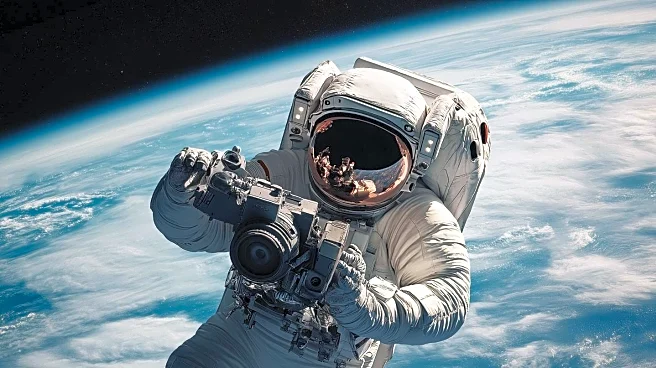What's Happening?
Major Chris Hadfield, renowned for his role as commander of the International Space Station (ISS) and his viral rendition of David Bowie's 'Space Oddity,' has announced his retirement from the space program. Hadfield, who has been based in Houston with NASA for over 20 years, revealed his decision at the Canadian Space Agency headquarters near Montreal. He cited a promise made to his wife nearly 30 years ago to eventually return to Canada. Hadfield first entered orbit in 1995 after serving as an air force test pilot. His wife, Helene, expressed that anything Hadfield does is always an adventure, indicating their readiness for the next chapter.
Why It's Important?
Chris Hadfield's retirement marks the end of a significant era in space exploration, as he has been a prominent figure in promoting space science and education. His social media presence and creative outreach have inspired millions worldwide, making space exploration more accessible and engaging to the public. Hadfield's departure may impact the Canadian Space Agency's visibility and influence, as he has been a key ambassador for Canadian contributions to international space missions. His return to Canada could also influence future collaborations between Canadian and international space agencies.
What's Next?
With Hadfield's retirement, the Canadian Space Agency may seek new figures to continue his legacy of public engagement and education in space science. Hadfield's move back to Canada could lead to new opportunities in education, public speaking, or advisory roles within the space community. His influence may continue to inspire future generations of astronauts and scientists, potentially shaping Canada's role in global space exploration efforts.
Beyond the Headlines
Hadfield's retirement highlights the personal sacrifices and commitments astronauts make, balancing their professional achievements with family promises. His decision to return to Canada underscores the importance of personal fulfillment and family ties, even for those who have reached the pinnacle of their careers. This move may encourage discussions on work-life balance within high-pressure careers like space exploration.









